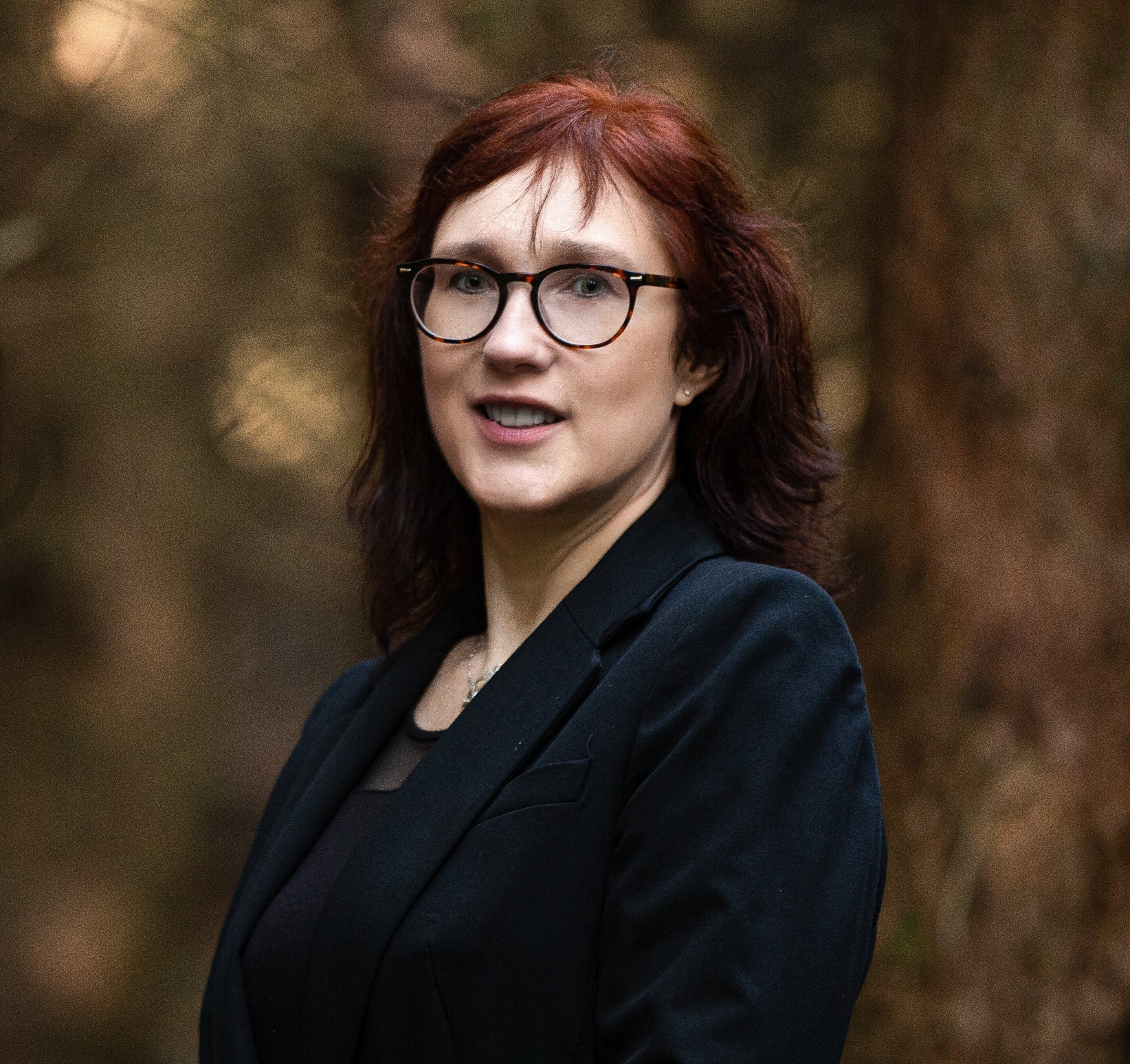 It’s hard to imagine an individual more involved with — and passionate about — the world of books than Vanessa Fox O'Loughlin. Firstly, she writes thrilling, bestselling crime novels as Sam Blake — books that have seen her twice shortlisted for the Irish Crime Novel of the Year, and garnered high praise from our reviewers.
It’s hard to imagine an individual more involved with — and passionate about — the world of books than Vanessa Fox O'Loughlin. Firstly, she writes thrilling, bestselling crime novels as Sam Blake — books that have seen her twice shortlisted for the Irish Crime Novel of the Year, and garnered high praise from our reviewers.
If that wasn’t enough, Vanessa is also founder of Ireland’s International Crime Festival, Murder One, a board member of the Crime Writers Association, the founder and managing director of Ireland’s seminal national writing resources website, and the founder of The Inkwell Group publishing consultancy.
All that considered, if you’re into crime fiction, Irish writing, or an aspiring writer, you won’t want to miss this interview with Vanessa (and you might also want to dig into our collection of 60+ outstanding novels by Irish writers).
What was your route into the book world, both as a writer, and publishing consultant?
I started writing in 1999 when my husband went sailing across the Atlantic for 8 weeks and I had an idea for a book. I had a lot of spare time - no children then - and started writing longhand, typing it up in the office in the evenings and weekends. I was convinced it would be a bestseller, but I made all the rookie mistakes and sent it out the moment the first draft was finished. It was rejected everywhere with good reason, but the bug had bit and I kept writing, starting book 2 as the rejections came in.
By book 3 I realised that I really needed to learn more about fiction writing technique – I was in my local library when I saw a flyer for a weekend retreat in Dingle in Kerry. I’d read the author who was giving it, crime writer Julie Parsons, and loved her books, so I decided to give it a go. I had two small children by then and had to fly my parents in from the UK to help out (lists on the fridge, freezer full etc). I loved the workshop and wanted to learn more but my husband worked shifts (he was in the Irish police force) so getting to an evening class was tricky. I really wanted to hear from bestselling authors and I wanted to have a fabulous day learning the craft in the company of other writers, so I started my own workshops – the first one day intensive fiction writing workshops in Ireland. And it turned out that I wasn’t the only person in this situation - they became (rather unexpectedly) internationally successful. Learning about the industry through facilitating professional workshops, I built huge connections and that company, Inkwell, grew into the publishing consultancy it is today.
Can you summarise what www.writing.ie does, what led you to found it, and what you’re most proud of achieving through the platform?
Writing.ie is an online magazine for writers providing all the help I couldn’t find when I started – it now has thousands of articles by writers for writers, on how to write (fiction and non-fiction) but also on their writing journey, their tips for getting published, what worked for them and what didn’t to save others making the same mistakes. It grew from the Inkwell newsletter that I used to send out to writers – inevitably the moment I hit ‘send’ someone would email me about a competition or event I didn’t know about – I felt that there was a need to bring the information for writers together into one central point. Then I discovered the Writing.ie domain was available and it grew from there.
What’s special about the Irish writing scene?
It’s incredibly friendly, supportive and we all know each other – across all genres. We’re a very small country (our population is about 7 million) but we punch well above our weight on the literary scene internationally and we are all thrilled to see other Irish writers succeed – they pave the way for the rest of us!
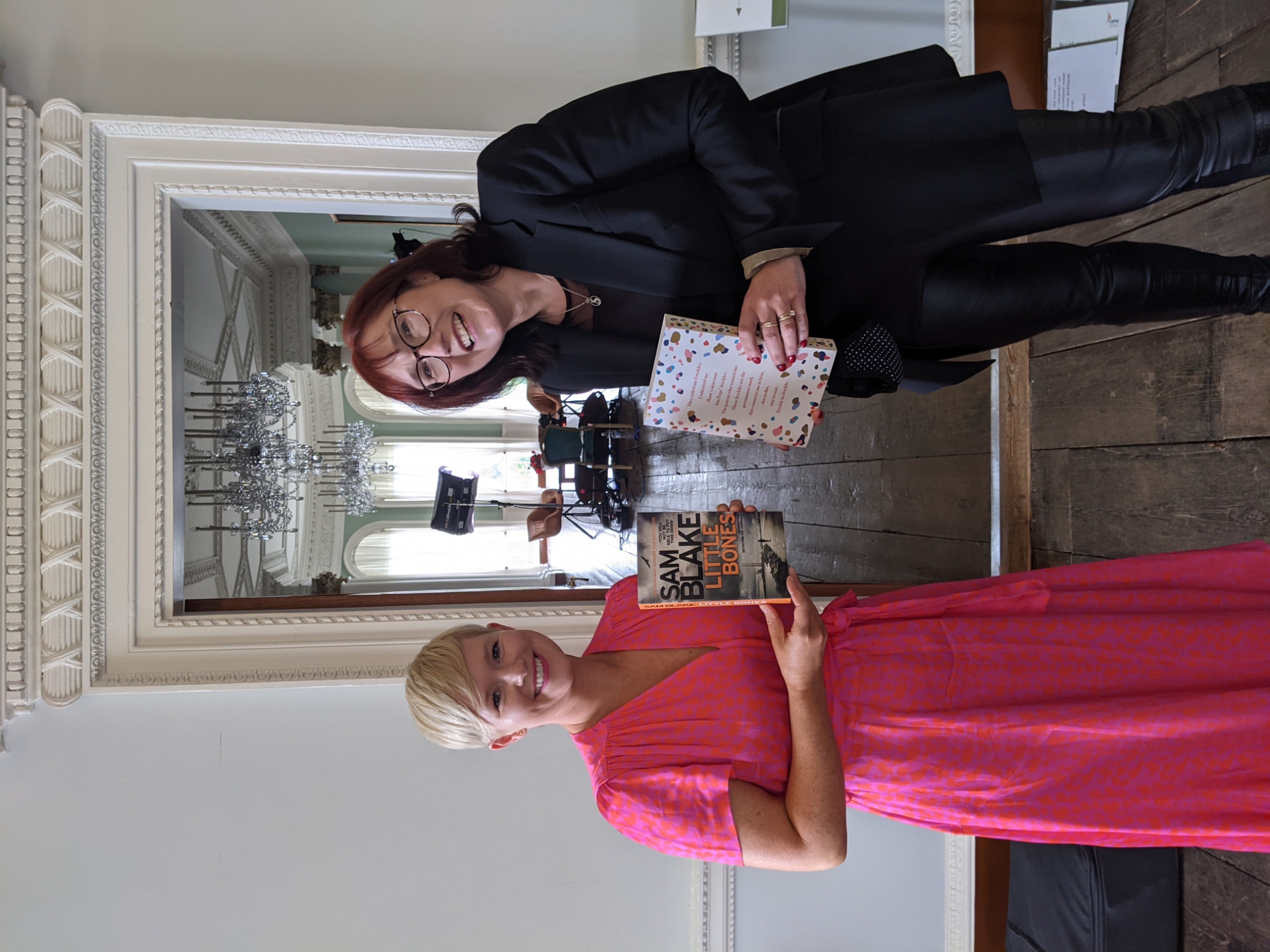
Could you share what The Inkwell Group publishing consultancy does? What are your proudest moments, or biggest success stories, with Inkwell?
Inkwell really forms a bridge between aspiring writers and the publishing industry - the most valuable thing we do is provide readers reports to new writers – experienced authors who write in the relevant genre (this is SO important) critique new writer’s books. They give feedback on everything from plot and character development to writing technique. When I first started getting interest in my work, an editor sent my book for a readers’ report and to say it was illuminating is a huge understatement! The reports really move a book forward.
I also answer lots of queries from writers who need help and have 360 industry experience across traditional publishing – both with independent publishers and the big five – and self-publishing. I’m a bit like a doctor, everything is confidential so I often get experienced writers asking for advice or a steer on a situation.
Our biggest success story? Whenever I hear from an author we’ve worked with whose book has found a home it’s a huge success! Our biggest though, was probably introducing an author to an agent who went on to sell the book (in just over a week) for over a million pounds across various territories. But it’s not about money, everyone’s definition of success is different, and for a book that’s been worked on and nurtured, finding a passionate indie publisher for it, is just as exciting.
What are your top tips for aspiring novelists? And for aspiring crime writers in particular?
The best advice I was ever given was ‘just keep writing’ – every word you write makes you a better writer, and serving your apprenticeship and learning fiction writing technique is vital for success.
Reading is essential too – you can’t read too much, outside your genre, but within it too, so you can learn from other authors, and see how they tackle storytelling.
It’s also important for all new writers to know – and expect- their first draft to be terrible, it’s supposed to be – once the words are on the page you can work with them, that’s when the real work begins. I think a lot of new writers get put off because the Booker prize winner in their head doesn’t transfer to the page straight away – don’t worry, just get the words down and you can get them organised in subsequent drafts.
Aspiring crime writers need to think pace and tension, and avoiding the clichés of the genre. Andrew Miller said in an interview we did recently, that debut novels need to be ‘original and fresh’ – in crime writing particularly, the subject matter may follow a traditional format, but the way you approach it MUST be new.
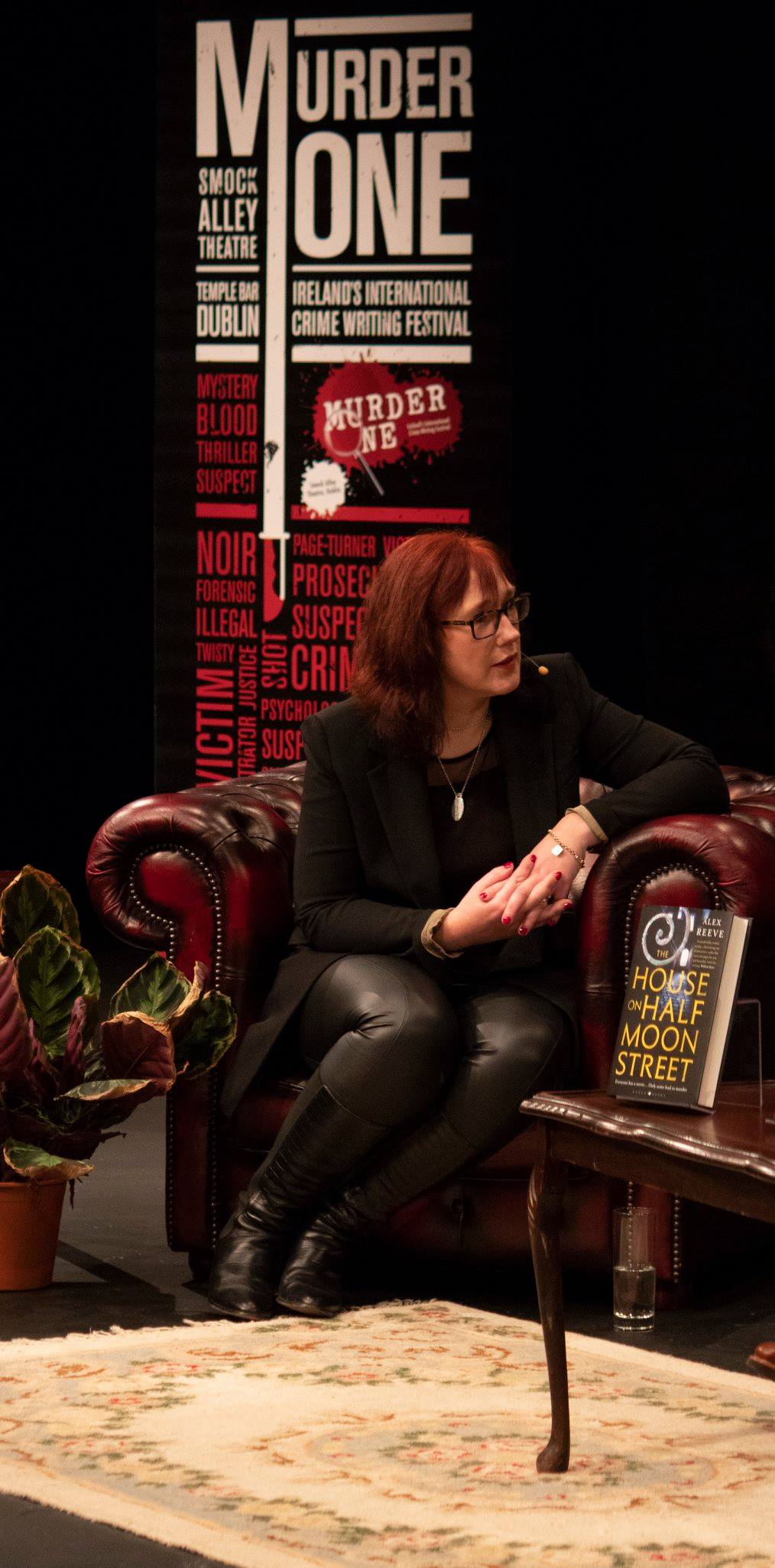
Moving now to your own writing as Sam Blake — was writing a long-held ambition? What drew you to crime? And what sparked your first novel? Was there a “eureka!” moment?
I read crime because I love puzzles, I love a book to challenge me and get me thinking. I’m a solution finder in real life – I have a compulsive urge to find a way to fix problems, so crime and the mysteries within a crime novel give me huge satisfaction. The idea for my first novel drew on all sorts of interesting characters I’d met and gradually developed as an idea. I find stories can creep up on you, the best ones grow on their own, and suddenly you have a story to tell. Back with my first book, putting that idea on paper seemed the next logical step.
I still have eureka moments, when I suddenly see the reason for something. My debut novel Little Bones was about a detective Garda called Cat Connolly finding a baby’s bones hidden in the hem of a wedding dress. I had no real idea of why they were there until I was about two thirds of the way through. I was writing an interview scene with a key witness – and then it all came out.
There are moments like those with every book. Things can suddenly come together in the most serendipitous ways and then I know I’ve really found a story. In Remember My Name, my latest book, which starts with an overheard phone call and ends in murder, there was a twist right on the last page that I hadn’t seen until two characters sat down with their coffee and I was writing the scene. Part of the magic of writing is going back over the book and discovering that the bread crumb trail that leads to an unexpected twist has been there all the time – your subconscious mind is busy doing the work as you write, bringing you to that point, even if you don’t know it!
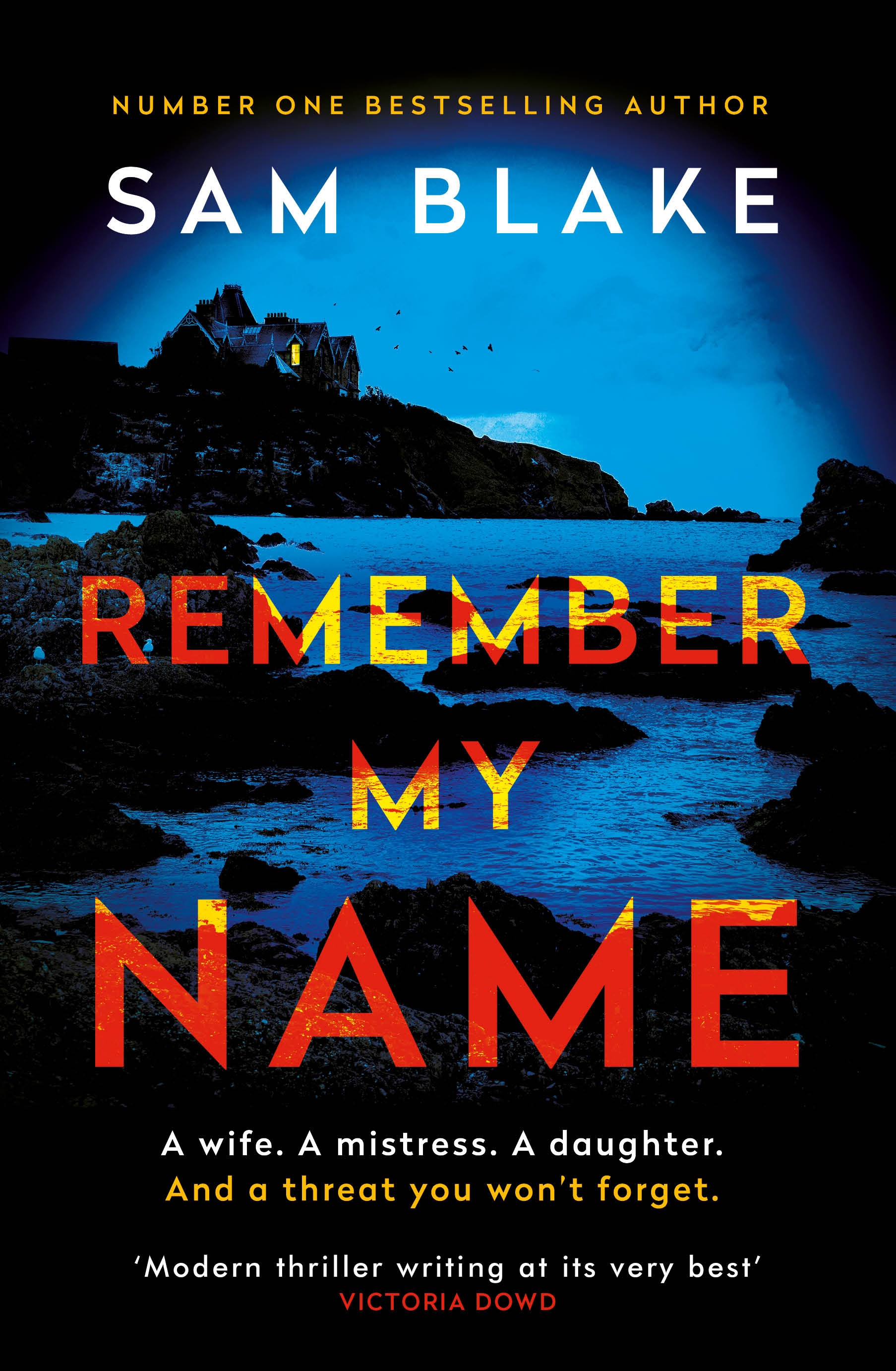
With several novels under your belt, how do you approach writing?
I often start with a scene, an event or situation – the central mystery - and from there start to explore who the characters are that are involved, and what their story is. Once I’ve got a feeling for them, I dig deep into their psyche for their personal secrets and look for the twists. I think it’s very interesting to use the readers assumptions, and the opinions of characters they think they trust, to hide the truth – often in life, things are not what they seem on the outside, and that’s what makes a good thriller tick. I’m fascinated by what happens behind closed doors and why people react the way they do.
Do you plan meticulously before putting anything on paper, or is your process more organic? What comes first – crime, characters, or broader themes?
I’m normally a plotter, I create a rough chapter plan in a table – 6 columns across and 6 deep, so I’ve notionally got 36 chapters of rough notes – there might only be a few words in each column/chapter. This structure helps me play around with the story and work out the locations and where the twists need to come. When I actually write it, that plan is only a rough guide, and I usually end up with well over 60 chapters. The last two books I’ve written I haven’t planned in detail and that’s meant they’ve needed more editing, moving chapters around, adding more detail, but I think it’s good to stretch yourself and try new things – I want to grow as a writer with every book.
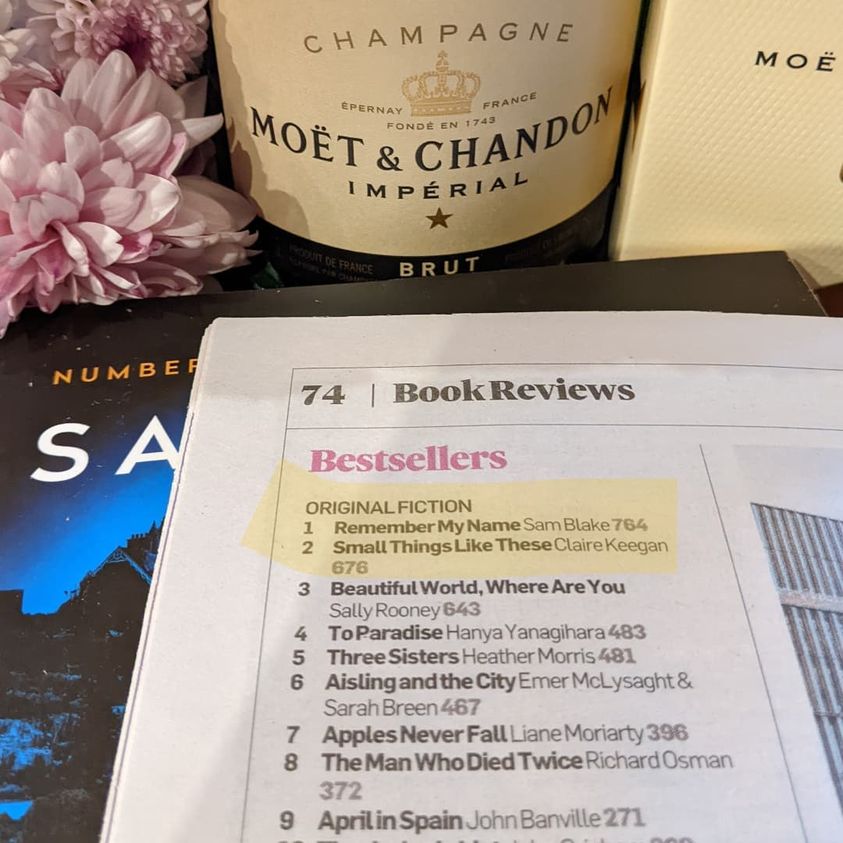
What’s next for Sam Blake? Are more novels coming our way soon?
I’ve just finished the book that will be out in 2023, and I’m about to start the edits – it’s set in a country house in County Wicklow, Ireland – it’s sort of TV’s Country House Rescue meets Agatha Christie’s Murder is Easy, but doesn’t have a title yet, at least not one I’m completely happy with. And I’m working on the next idea - I’m just back from a research trip to Paris for that one.
You also founded and manage Ireland’s International Crime Festival, Murder One. What led you to establish it? What are your festival highlights to date?
We have a lot of literary festivals in Ireland but because literary fiction is so strong here, commercial fiction often gets left behind, despite being a bigger seller. Crime was often reduced to a panel, if that, and I felt that it’s such a huge all-encompassing genre that it needed its own Irish festival. We have some amazing crime writers here and they needed a voice. At the first Murder One, Lynda La Plante sponsored a fabulous forensics workshop/demonstration with Think Forensic – over 1000 people got to see how real crime scene technicians work. I love creative event planning and we had the perfect venue - it was a huge success.
As an off shoot of Murder One, we ran Midsummer Murder One in 2019 and brought Karin Slaughter, Michael Connelly, Jeffery Deaver, James Elroy and Jane Harper to Dublin’s incredible City Hall – it’s a round marble building beside the river in the heart of the city, a stunning venue. You can’t get much better than meeting your heroes! I love running the festival as it means we have so much flexibility – obviously we have to deliver for our funders, but we can be creative and ambitious, and I love that.
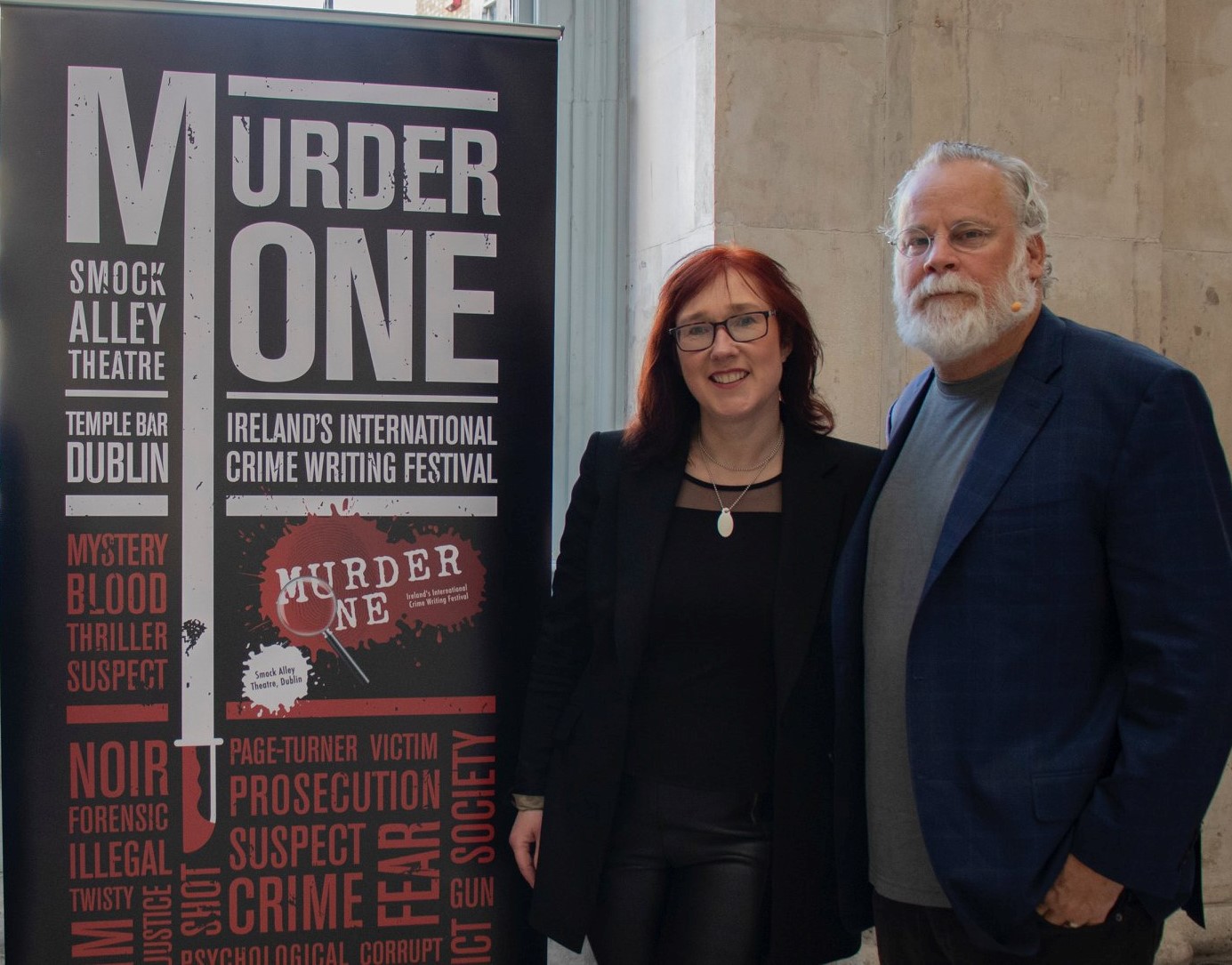
What’s on the cards for future festivals?
We’ve just got full funding for Murder One 2022 which will be a hybrid festival run in the most incredible library – the LexIcon venue beside the sea in Dun Laoghaire. It’s a flagship building that has won heaps of awards and we’re really excited to be putting a programme together.
I’m also working on National Crime Reading Month for the Crime Writers Association in the UK (June 2022) and I’ve SO many ideas – we’ve had a super enthusiastic response from bookshops and libraries and I have exciting plans for this year and subsequent years. There will be events for readers of all ages happening all over the country in bookshops, libraries, museums and schools, as well as online – I want everyone to be talking crime, thriller and mystery!
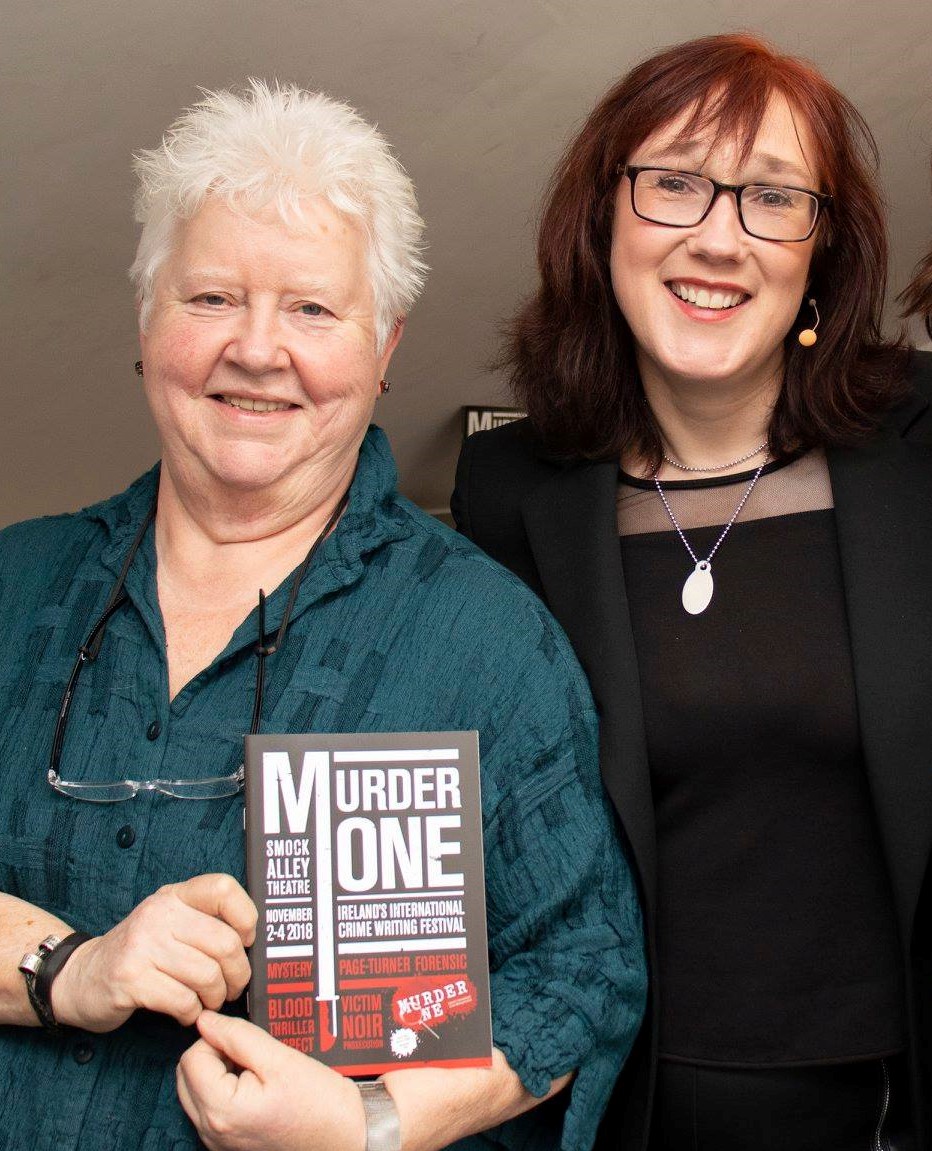
What role does the Crime Writers Association play?
The Crime Writers Association is an internationally recognised body that champions crime and crime writers offering a huge range of support, plus a vibrant community for writers of all aspects of the genre. It runs the legendary Daggers – awards that cross the full breadth of the genre and include awards for new writers (the Debut Dagger) and the Diamond Dagger for seasoned writers. I’m delighted to have recently joined the board.
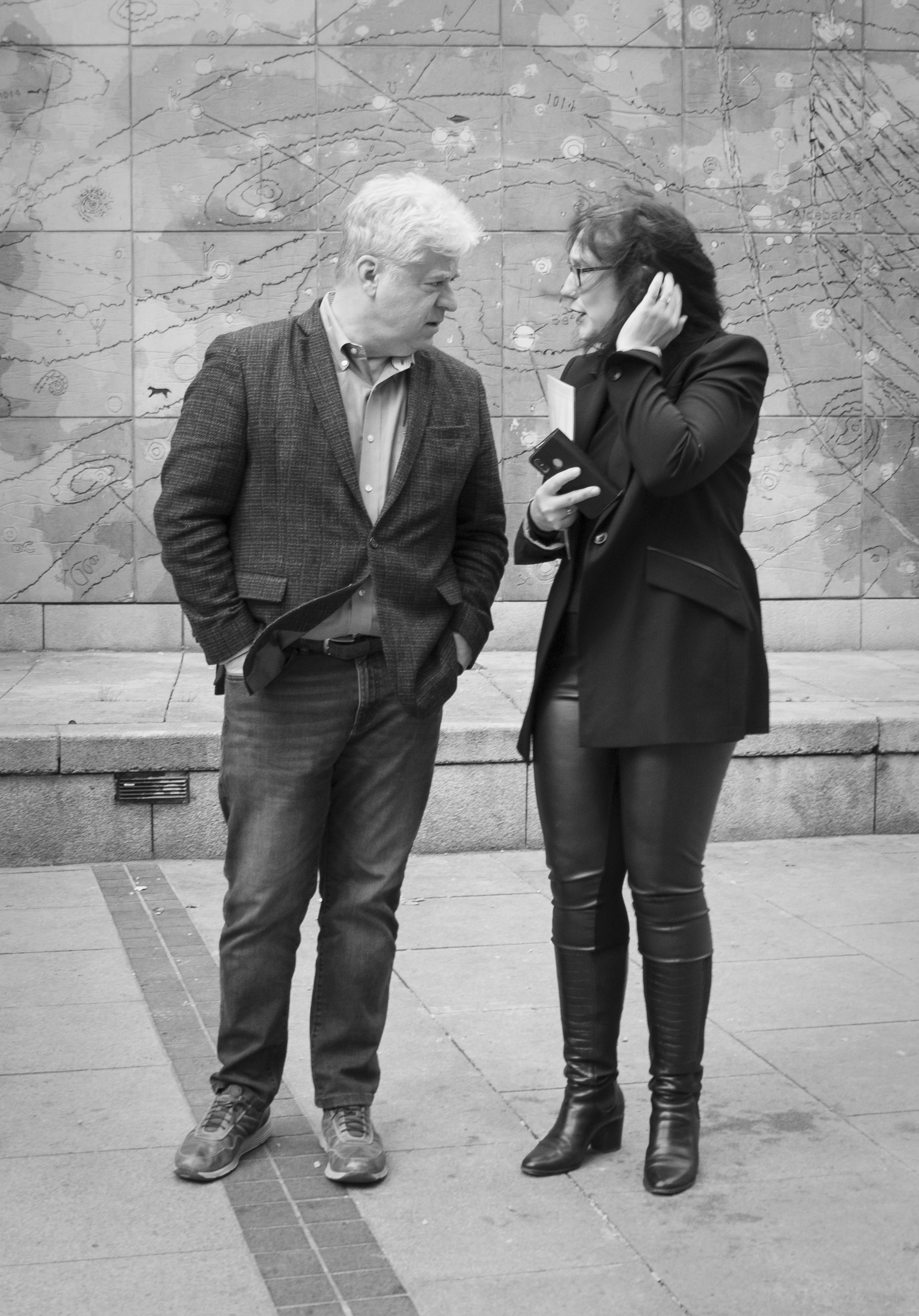
Who would you invite to your dream literary party?
My dream book party would have to be Daphne du Maurier (Rebecca is my favourite book of all time) Agatha Christie, Conan Doyle and Oscar Wilde. We could all talk plot! Conan Doyle and Oscar Wilde knew each other and would be brilliant dinner companions. When they met for dinner at Langham’s in London in 1889 Doyle described it as ‘a golden evening’.
Tell us a secret about books…
I’m not sure it’s a secret, but reading for just six minutes each day can help reduce stress by up to 68%. A study at the University of Sussex found participants who read for pleasure for just six minutes each day were found to have a significantly slower heart rate and reduced muscle tension. Keep a book beside the bed, turn off your screen and have six minutes of literal rest and relaxation – although I can’t promise that my books will reduce your heart rate!
Want to know more?
Find out more about Sam Blake’s books here, investigate the Murder One Crime Festival here, and explore Irish writing here.
For more industry insights, read the rest of the series.



Comments (0)
Leave A Reply
You must be logged in to post a comment.